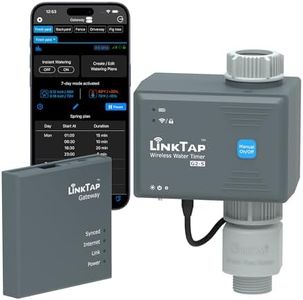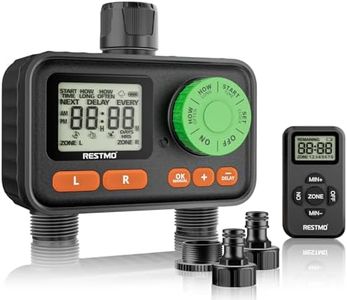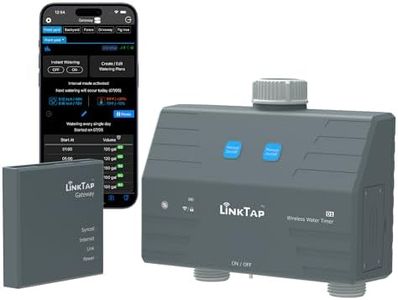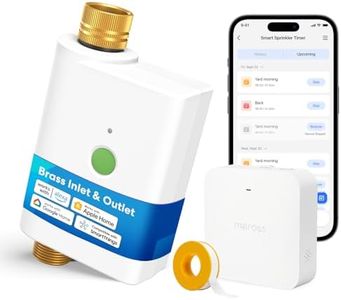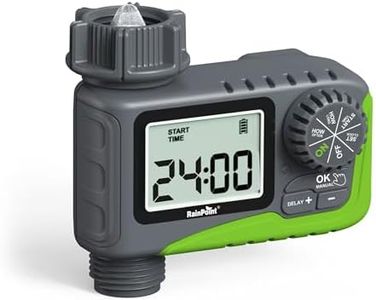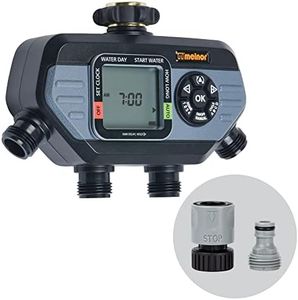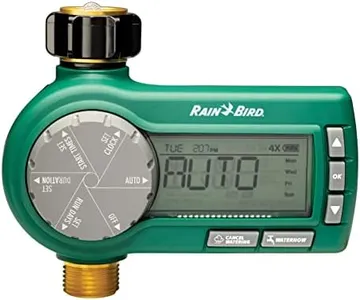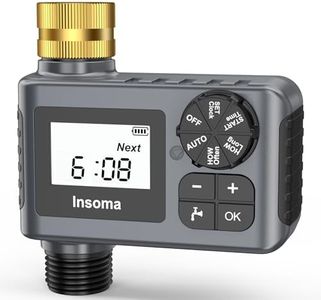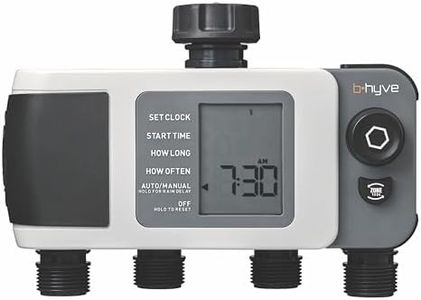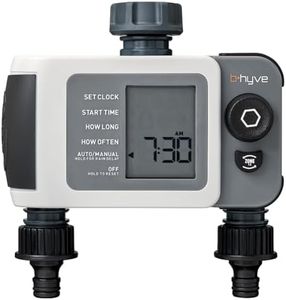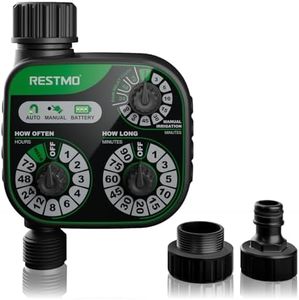We Use CookiesWe use cookies to enhance the security, performance,
functionality and for analytical and promotional activities. By continuing to browse this site you
are agreeing to our privacy policy
10 Best Water Timers
From leading brands and best sellers available on the web.By clicking on a link to a third party's website, log data is shared with that third party.
Buying Guide for the Best Water Timers
Choosing a water timer is an excellent way to automate and streamline your garden or lawn irrigation, saving both time and water. To find the right fit, it’s important to understand your own watering needs, the complexity of your irrigation system, and how involved you want to be in scheduling. By focusing on the most important features and understanding what each one means for your garden, you can select a timer that fits your lifestyle and makes watering hassle-free.Number of Zones/ValvesThe number of zones or valves in a water timer refers to how many separate areas you can control water flow to with a single device. If you have a simple setup, like one garden bed or a small lawn, a single-zone timer may suffice. For those with multiple lawns, garden beds, or drip systems, a multi-zone timer allows you to create different watering schedules for each area. Consider the layout of your space and the types of plants you have; individualized schedules can help prevent both over-watering and under-watering.
Programming OptionsProgramming options describe how customizable the timer is—it can range from basic timers that simply turn on at a set time, to advanced models with flexible schedules, intervals, and runtimes. Simple dial timers are best if you want basic, consistent watering, while digital timers with plenty of customization are great for varying your routine on different days. Think about how much control you want; if you have specific watering needs or frequently change your schedule due to weather, more programming flexibility is helpful.
Manual Override FeatureThe manual override feature allows you to run the water manually, without disrupting the programmed schedule. This is useful for occasional spot-watering, fertilizing, or cleaning uses. If you prefer hands-off automation, this may not be critical, but if you value having on-demand control without having to reset programs, a reliable manual override is a good choice.
Power SourceWater timers usually run on batteries, though some plug into an outlet or even use solar power. Battery-powered timers are portable and easy to install anywhere, but will need periodic battery changes. Electric-powered timers can be more reliable if you have an outdoor socket, while solar-powered models are eco-friendly and low-maintenance if you have reliable sunlight. Consider the convenience of where your timer will be located and how often you’re willing to maintain it as you choose the best power source.
Weather ResistanceWeather resistance refers to how well the timer can handle being outside in rain, sun, or even snow. High-quality weatherproof timers are essential for long life, especially if your climate brings extreme temperatures or frequent moisture. If your timer will be exposed to the elements, prioritize models with solid waterproofing and durable build quality to ensure it keeps working reliably.
Flow Rate and Pressure CompatibilityFlow rate and pressure compatibility indicate how much water the timer can handle without malfunctioning and if it matches your home’s water pressure. If you have high-pressure water or a large irrigation system, make sure your timer is rated for it to avoid leaks or device failure. For most home gardens, standard flow rates are sufficient, but check your system specifications if you’re unsure or running complex setups.
